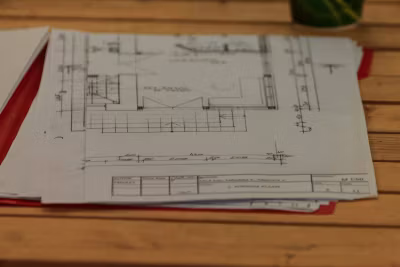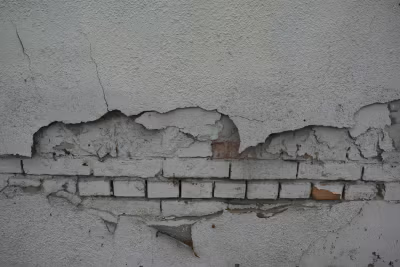Building Code and Permit Violations

In Colorado, every construction or remodeling project must follow one basic rule: it has to meet code. That means the work must be done by qualified, licensed professionals under valid permits and approved inspections.
Yet, countless homeowners discover too late that their contractor never pulled the required permits—or that work done behind the walls doesn't pass inspection once the dust settles. At Hollington Law Firm, we help Colorado homeowners resolve problems that stem from unpermitted or non-compliant work. Whether your project was red-tagged, your sale fell through because of missing permits, or you learned after completion that critical safety inspections were skipped, we can help you bring the work into compliance and hold the responsible party accountable.
Why Permits Matter
A building permit is not just paperwork; it's legal authorization to perform construction that meets public-safety standards. Permits ensure that structural, electrical, mechanical, and plumbing systems are built to code, inspected at key stages, and safe for occupancy.
When contractors ignore this process, homeowners pay the price. Unpermitted work can result in:
Stop-work orders and fines
Lost insurance coverage
Forced demolition of completed work
Long-term resale problems
Title companies and buyers routinely flag unpermitted additions or renovations as defects, making it difficult to sell your home.
The Contractor's Legal Duty
Under Colorado law and standard industry practice, the contractor is responsible for obtaining the required permits for any significant construction, remodeling, or repair work. That includes:
Determining which permits apply to the project
Preparing and submitting plans to the local building department
Paying permit fees
Scheduling inspections and ensuring the work passes each stage
Failing to do these things is not a harmless oversight—it's a breach of contract, violation of local code, and in many cases, evidence of negligence. Homeowners hire professionals precisely because they expect the work to comply with the law. When a contractor cuts corners to save time or avoid scrutiny, that shortcut can create years of legal and financial consequences for the homeowner.
Consequences of Unpermitted Work in Colorado
Permit rules are enforced at the local level—cities, counties, and regional building departments each have their own procedures—but the principle is the same statewide: significant work must be permitted and inspected.
When it isn't, homeowners may face:
Immediate Problems
Stop-work orders and fines from the local building department
Work denials or reinspection fees if the project can't meet code retroactively
Loss of insurance coverage for damage caused by unpermitted work
Long-term Issues
Licensing action against the contractor from state or local boards
Resale obstacles because title companies or buyers won't accept unpermitted improvements
In many cases, the only way to correct the problem is to open finished walls, expose concealed work, and complete new inspections—all at the homeowner's expense unless recovery can be obtained from the responsible contractor.
Legal Remedies When Contractors Skip Permits
If your contractor failed to pull the required permits, you have several legal remedies under Colorado law.
Breach of Contract
Most construction agreements specify that the contractor will obtain all necessary permits. Failing to do so is a clear contractual breach. You may recover:
The cost of obtaining permits after the fact
The expense of bringing work up to code
Damages for project delays or diminished property value
Negligence
Contractors owe a duty of care to perform work consistent with industry standards and legal requirements. Skipping permits breaches that duty. If unpermitted work causes property damage, safety hazards, or injury, the contractor can be held liable for resulting losses.
Fraud or Misrepresentation
In some cases, the contractor actively tells the homeowner that permits were obtained when they were not. This can amount to consumer fraud or intentional misrepresentation. Courts may award punitive damages and allow rescission of the contract.
These claims often overlap with Colorado's Construction Defect Action Reform Act (CDARA) and the Homeowner Protection Act, which prevent contractors from escaping liability through waiver clauses and require them to respond to formal notices of defective or unsafe work.
Steps to Take if You Discover Unpermitted Work
Immediate Actions
The first step is to stop all ongoing work until you understand the legal and safety implications. Contact the local building department to learn which permits should have been issued and whether retroactive permitting is possible.
Document Everything
Gather all project-related materials including:
Emails and text messages with the contractor
Invoices and payment records
Contract documents showing what the contractor promised
Get Professional Assessment
Have the work inspected by a qualified independent expert. A professional evaluation can reveal whether the construction can be brought to code or if it must be redone.
Consult Legal Counsel
Finally, consult a construction attorney who can communicate with the contractor, building officials, and, if necessary, pursue legal claims to recover your costs and clear your title.
Preventing Future Problems
Before hiring any contractor, take these protective steps:
Verify their licensing status through the Colorado Department of Regulatory Agencies (DORA) or your local building department
Require that the contract explicitly state the contractor's responsibility for obtaining all required permits and scheduling inspections
Request copies of issued permits and inspection approvals as the project progresses
Staying informed and documenting each step is the best way to prevent disputes later. Learn more about selecting reputable contractors to avoid these issues from the start.
How Hollington Law Firm Helps
Our firm guides homeowners through every phase of unpermitted or failed-inspection disputes. We:
Investigate whether permits were required and who was responsible for obtaining them
Obtain building-department records
Coordinate the process of bringing the project back into compliance
Pursue claims for breach of contract, fraud, and negligence when the contractor's misconduct has caused real loss
When appropriate, we coordinate with local officials and code experts to ensure the project is properly permitted and inspected so that you can safely occupy, refinance, or sell your home. Our focus is always the same: protect your property, restore safety, and recover the costs created by the contractor's violations.
When to Seek Legal Help
If your contractor failed an inspection, was caught working without a permit, or left you with completed work that the county won't approve, don't wait for the problem to escalate. The longer unpermitted work sits unresolved, the harder it becomes to sell, insure, or refinance your property.
Contact Hollington Law Firm to schedule a consultation. We'll review your project documents, contact the relevant authorities, and help you correct the violations while pursuing recovery from the responsible parties.
Have Questions About Your Case?
Schedule a free 15-minute screening call to discuss your construction defect or property damage claim with our experienced attorneys.



